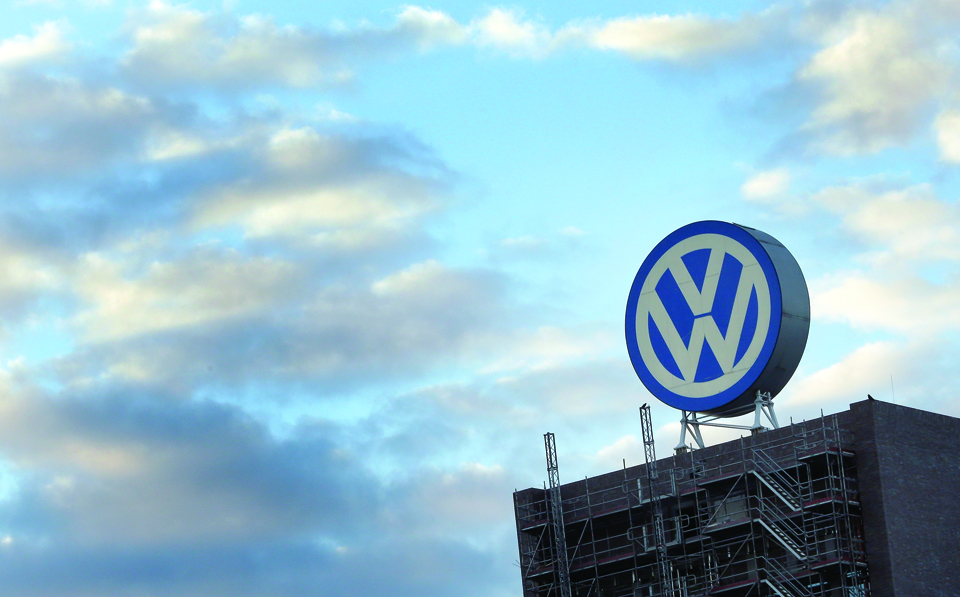
By: Seth Culp-Ressler | Features Editor

For a company that launched an ad campaign last week all about “keeping your promises,” Volkswagen is doing an impressively bad job at deserving any trust itself.
It’s been almost five months since the first allegations of emissions cheating were brought against German automaker Volkswagen. Five months for the global community to realize, react and retaliate. And, most importantly, five months for VW to present an angry public with a real, meaningful solution.
Yet even with this past week’s announcement of a potential fix for some affected vehicles, as well as incoming owner compensation, the automotive giant hasn’t shown any convincing progress — and that’s a serious problem.
In late September 2015, reports surfaced that Volkswagen had installed a software cheat in hundreds of thousands of its diesel cars. The cars were able to recognize when testing was underway and adjust how their engines ran to reduce tailpipe emissions. Under normal circumstances the vehicles would turn off the cheat, releasing up to 40 times the legal amount of pollutants.
As the Environmental Protection Agency said in its initial statement, NOx pollution — what these engines are emitting far too much of — has wide ranging negative health consequences, from “increased asthma attacks and other respiratory illnesses” to “premature death due to respiratory-related or cardiovascular-related effects.”
Volkswagen’s manipulation of the software is a blatant skirting of the law, and one that poses significant health risks to the general population. It’s astonishing that a company would be so audacious to try this in the first place. And the entire situation became even more baffling when the numbers of affected vehicles started to surface.
At first, the cheat was said to be found in only the vehicles equipped with VW’s 2.0-liter diesel engine, for a total of 499,000 cars in the United States. Over the ensuing months, the manufacturer added its 3.0-liter diesel engine to the list of affected automobiles. This brought the U.S. total to around 580,000 and worldwide numbers to around 11 million.
Predictably, the backlash was swift and harsh. Just five days after reports broke, VW’s CEO Martin Winterkorn stepped down. Congressional hearings were held. Lawsuits popped up like dandelions in spring — the EPA and the United States Department of Justice’s joint suit alone could result in $90 billion in fines. Amid the turmoil, VW posted record quarterly losses last October of almost $4 billion.
Oh, and owners aren’t exactly pleased, either.
It may seem excessive to list out every detail, but it’s important to fully understand where VW finds itself. The pressure on the company to fix the problem is enormous. You’d think that after five months of the world watching its every move, the company would have some answers. But there hasn’t been any sign of progress toward a legitimate solution, a fact even more astonishing than the arrogant thinking that landed VW in this mess. Well, that’s not quite fair. To Volkswagen’s credit, it’s made some attempts. They’ve just been wildly inadequate.
As Automotive News reported in early February, under deadline Volkswagen submitted its proposed fix for the 85,000 or so 3.0-liter V6 equipped models to the California Air Resources Board. Broadly, this would appear to be a step in the right direction. That said, VW has simply submitted the proposal — it still has to actually be approved.
And therein lies the problem. Last month, a similar proposal — albeit for the 499,000-odd 2.0-liter engines — was rejected by CARB, which claimed the proposal was “incomplete, substantially deficient and falls far short of meeting the legal requirements.” The EPA agreed.
Less-than-acceptable attempts are not how Volkswagen should be handling the situation. And let’s be clear — these rejections are not a case of overzealous regulation. This may not be a case in which there are any confirmed fatalities stemming from the problem, but what VW did has significant impacts on the health of every single person.
This past Sunday, Reuters reported that Volkswagen will be offering “generous compensation” to U.S. owners, but didn’t elaborate on what that will look like. Even further, no compensation will actually make its way to owners until an agreement between U.S. regulators and VW is made on a proposed remedy. Moreover, what compensation will be given to a public suffering from a health risk of the company’s own making?
Everything rests on the company figuring out a way to fix these cars. It’s been five months, Volkswagen. You better do that soon.




